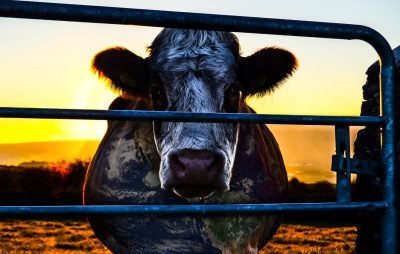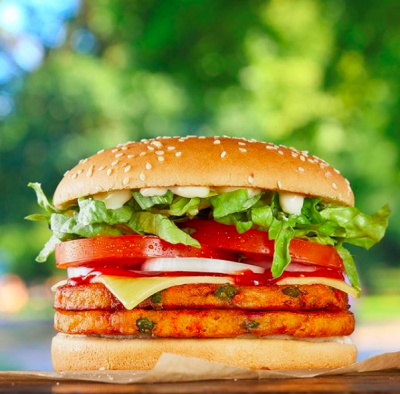We are often told that animals are ‘humanely slaughtered’ but the term ‘humane’ means ‘having or showing compassion or benevolence’. It is hard to see how the word ‘humane’ describes what happens in a a typical industrial slaughterhouse.
‘Humane slaughter’ is a marketing term—and an oxymoron—that provides a type of ‘psychological refuge’, which allows us to imagine that animals do not suffer during their final moments.
That the big meat, egg, and dairy companies need to market themselves as ‘humane’ indicates there has been a societal shift in the way people view animals. Empathy is hard-wired into our genetics—and as we find out more and more about how animals are factory farmed and slaughtered, it’s harder than ever to deny the grim realities of industrial animal agriculture.
Is there such a thing as humane slaughter?
Industry proponents generally describe ‘humane killing or slaughter’ as occurring when an animal is ‘rendered insensible until death ensues, without pain, suffering or distress.’ In theory, an animal are stunned prior to bleeding out, so they are unconscious when they die.
However, we know that in practice that even this bleak minimum standard is not always met, with countless animals fully conscious as they have their throats slit, are shot in the head, gassed, bludgeoned, or electrocuted. And even when stunning is provided, it often fails, requires multiple attempts and causes terrible suffering all of its own.
Former workers from slaughterhouses and factory farms have given haunting, real-life accounts of how ‘humane slaughter’ process is anything but. Often, these ex-industry employees suffer from long-term psychological impacts resulting from continued exposure to extreme levels of violence, suffering, and death. Slaughterhouses make victims of people, too.
They Fight For Their Lives
As these workers will tell you, animals fight for their lives, right until their very last breath. They experience fear, pain, suffering, and loss, often beyond our worst imagination. Given the chance, they will also fight to protect their friends and their young.
In this way, ‘humane slaughter’ relies on the fallacy that animals are not conscious beings. But, of course, they are. Each has the capacity to have both positive and negative experiences, to feel joy, love and contentment, pain, fear and distress. As Animal Ethics remarks, “there are powerful reasons to conclude that this is what should matter when it comes to giving someone moral consideration and not discriminating against that being.”
Animals value their lives as much as we do and there is no ‘humane’ way to kill someone who does not want to die.
WHAT ABOUT A HUMANE LIFE?
Another flaw surrounding ‘humane slaughter’ is that it assumes a human’s only moral obligation is to provide an animal with a ‘quick’ death—but what of the conditions these animals must endure during life?
US data suggests that over 99 percent of farmed animals spend their lives on Concentrated Animal Feeding Operations (CAFOs.) The horrific treatment of animals on such factory farms is well-documented, and happens in countries all over the world.
Factory-farmed chickens are kept in restrictive sheds, with little or no access to the outdoors. Most factory-farmed pigs are kept in ‘sow stalls’, or cages so small they can’t even turn around. Factory-farmed cows may spend time outdoors, but are still confined to feedlots without access to pasture or grass. Ducks are denied proper swimming water for the duration of their lives, which are always cut far too short.
There is nothing ‘humane’ about denying an animal access to the sun and the ground beneath their feet, or suppressing their natural behaviors. Breeding practices designed to maximize weight gain (or production of eggs and milk) also cause animals stress, ill health, and premature death. As Game of Thrones actor Jerome Flynn said:
“[Animals’] lives are miserable from the moment they are born, until the day the lorries arrive to take them to slaughter. Yes, at the end of all this suffering, they are hauled off to the abattoir, where the sights and smells of blood and entrails are stomach-turning.”
Nothing humane happens in a slaughterhouse
The majority of people do not want to inflict harm on animals. A 2017 survey conducted by The Guardian found that 75 percent of American adults believe they usually eat meat, dairy, and eggs “from animals [who] are treated humanely”. A 2022 survey by VFC found that most consumers say they are animal lovers and oppose factory farming, but they did not know that almost all animals bred just to be slaughtered are kept this way.
Greenwashing
When we understand that ‘humane slaughter’ is little more than a marketing term, we can see that even consumers who care about animals’ welfare are likely to still be contributing to their suffering. The industry works hard to make us keep buying the products we ethically oppose.



